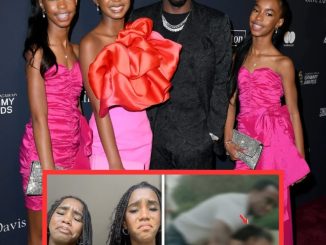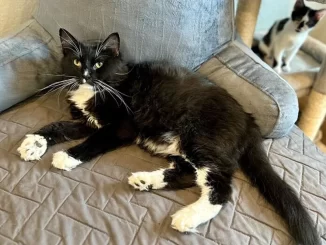Kevin Costner has been a prominent figure in Hollywood for decades, and recently, he addressed a heated confrontation with a feminist critic about the portrayal of women in his films.
The debate began during an afternoon in Montana, following an interview about his hit series Yellowstone. While signing autographs and chatting with the press, Costner was approached by a passionate feminist critic who challenged him on the roles of women in his western films.

The critic argued that in many of Costner’s movies, particularly Yellowstone, women were often defined by their relationships with men, and their roles seemed too traditional.
She suggested that as a powerful figure in Hollywood, Costner could be doing more to challenge these outdated gender norms in a genre that is typically male-dominated.
Costner, known for his grounded nature and integrity, paused to reflect before responding. He acknowledged the critic’s concerns but suggested their views on strong character development might differ.
For Costner, the key to a compelling character—whether male or female—is depth and authenticity, not simply fitting into predefined narratives.
The critic, however, continued pressing, suggesting that Costner’s westerns might perpetuate stereotypes about women and fail to reflect contemporary values. She urged him to do more, not just in his work but by using his platform to speak out publicly about gender inequality in the industry.

Costner responded thoughtfully, explaining his philosophy on storytelling. He pointed to his film Dances with Wolves, particularly the character of Stands With a Fist, played by Mary McDonnell.
He highlighted how she was not just a romantic interest but a fully realized, strong character who contributed to the plot in meaningful ways. This, he said, reflected his commitment to portraying women with dignity and depth.
As the conversation shifted to Yellowstone, Costner emphasized the complexity of characters like Beth Dutton. He argued that her strength and flaws were a product of authentic storytelling, not an attempt to satisfy any external agenda. For him, creating well-rounded characters was more important than fitting them into any particular mold.

The critic wasn’t convinced. She called for more vocal advocacy from influential figures like Costner, suggesting that public endorsements for gender equality were just as important as actions behind the scenes. Costner, however, explained that he had always preferred to advocate for women through the projects he worked on, rather than through grand public statements. He emphasized that real change, in his experience, comes from consistency and commitment, not spectacle.
He also pointed out that women have had significant roles behind the scenes on his recent projects, including female directors and writers. This, he said, was not because it was politically correct but because it led to better work. For Costner, this quiet form of advocacy was more impactful than making flashy public declarations.
In the end, the critic appeared to struggle with the depth and sincerity of Costner’s response. She had anticipated a defensive reaction but instead found herself facing someone who had long been committed to addressing gender issues through meaningful, tangible actions. Costner’s calm and thoughtful reply demonstrated that true progress, in his view, comes from consistent and meaningful change within the industry itself.


